In this article
For many years, it’s been believed that dogs, thanks to their amazing sense of smell, can detect cancer in humans. In the last few decades, this belief has been confirmed by research showing that dogs can smell certain types of cancer. Today, as with drugs and bombs, dogs are being trained to sniff out cancer and help humans detect it early and improve outcomes. Let’s learn some more details about dogs smelling cancer in humans.

How Do Dogs Act When They Smell Cancer?
If a dog detects a cancerous area, they might become hyperfocused on that spot, smelling it intensely.
Some dogs might also nip, paw or lick the area. But remember that you should not self-diagnose just because your dog excessively sniffs a certain part of your body. You might have a bit of food on your clothing or skin, or your dog might be anxious or worried about something else. There could be a few reasons why your dog is smelling you up close and personal or is showing a change in their behavior.
It’s well known that dogs have an incredible sense of smell. To give you a better idea, consider that humans have about 6 million olfactory receptors (smell receptors) in our noses, while dogs have up to approximately 300 million, about 50 times more than we do. Dogs also have a tendency for novel things, known as neophilia, which means they’re attracted to new and different smells and will investigate them to see what they are. This incredible sense of smell and neophilia help dogs detect cancer.
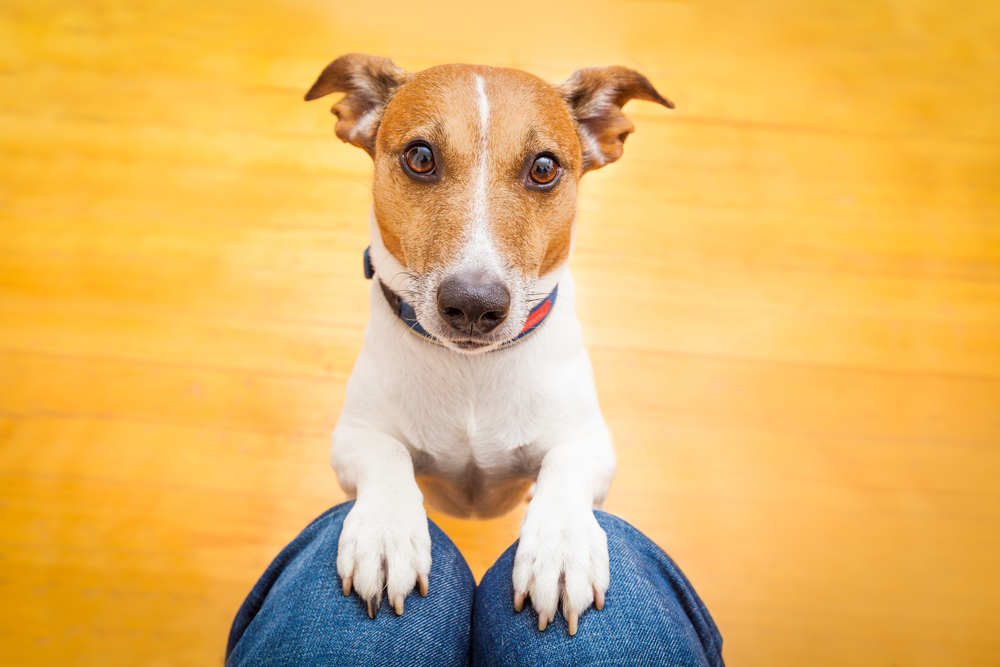
Why Is It Possible for Dogs to Smell Cancer?
Below are a few other factors that enable dogs to smell cancer.
Cancer Has a Specific Smell
When a disease state such as cancer is affecting your body, the disease has a specific odor or trace signature. The odor will be detectable to a dog as it’s different from the “normal” smell your body emits. Research1 has shown that dogs can smell volatile organic compounds (VOCs) produced and emitted by cancer cells. Bio-detection dogs can be trained to detect these odors to screen for and pick up cancers.
Dogs Can Detect Cancer Odors in Different Ways
Depending on the type and site of the cancer, a dog’s amazing nose can pick up VOCs from an affected person’s skin, urine, sweat, feces and even from their breath.
Dogs Can Smell Minuscule Concentrations of Odors
When compared with humans, dogs can smell much smaller concentrations of odors. Dogs can smell things in the parts per trillion, to put it into context this is comparable to detecting a teaspoon of sugar in two Olympic-sized swimming pools. This incredible sensitivity to smells and odors is why dogs can smell cancer when no human can.
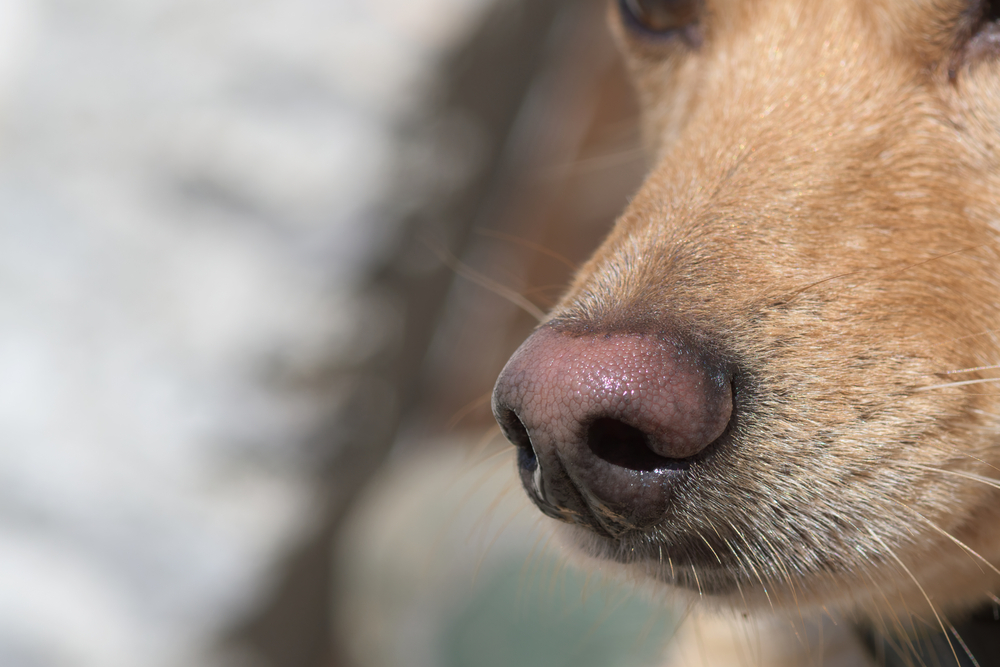
Are Cancer Sniffing Dogs Considered Medically Valuable?
Research is ongoing but trained cancer detection dogs are helping scientists and medical professionals pick up cancers earlier, which is vital for successful treatment. Using cancer sniffing dogs is safe and non-invasive, without risk of side effects.
For example, a study published in 20212 showed that dogs can detect aggressive forms of prostate cancer early. Prostate cancer is the second leading cause of cancer related death in American men, and this research demonstrates that a new screening tool based on the dog’s nose could support the PSA blood test to improve early diagnosis and lead to better outcomes.
While there is a limited availability of trained cancer detecting canines, scientists are also using evidence from a dog’s ability to diagnose disease via scent to create technologies that can detect and learn odor signatures of different types of cancers and other diseases. “Electronic noses” 3 are being developed to pick up volatile molecules produced by cancer cells.
Which Cancers Can a Dog Smell?
While dogs may be able to detect many kinds of cancer from odor signatures, researchers have found that there may be some cancers that are easier for dogs to detect than others, including:
- Colorectal cancer (from feces)
- Ovarian cancer (from blood samples)
- Prostate cancer (from urine)
- Lung cancer (from breath)
- Breast cancer (from the skin)
- Melanoma (from the skin)

How Are Dogs Trained to Detect Cancer?
Although a dog’s powerful sense of smell is something they’re born with, cancer-sniffing (bio-detection) dogs are highly trained to detect and respond to certain types of cancer. The training is similar to dogs trained to sniff out bomb-making materials and illegal drugs. Using positive reinforcement methods, dogs are trained to a select set of samples and then rewarded with a food treat or toy when they accurately identify known cancer samples. Dogs are then typically trained to screen samples on a carousel.
From what researchers and trainers have found, the best dogs to detect cancer are working dogs that are motivated and love searching and hunting for toys. Spaniels and Labradors are often chosen for this reason.

Final Thoughts
What do dogs do when they smell cancer? They may do several things, as we’ve seen today, from incessant sniffing and pawing at you to licking, staring, and, oddly enough, hiding out of fear for your health. All these actions and, admittedly, odd behaviors spring from the fact that dogs have a powerful sense of smell, and cancer gives off a specific odor they can detect. Researchers use trained cancer detecting dogs to screen for certain types of cancer, and to help them develop machines that can identify cancer earlier and in less invasive ways by detecting certain odors.
Featured Image Credit: Prostock-studio, Shutterstock
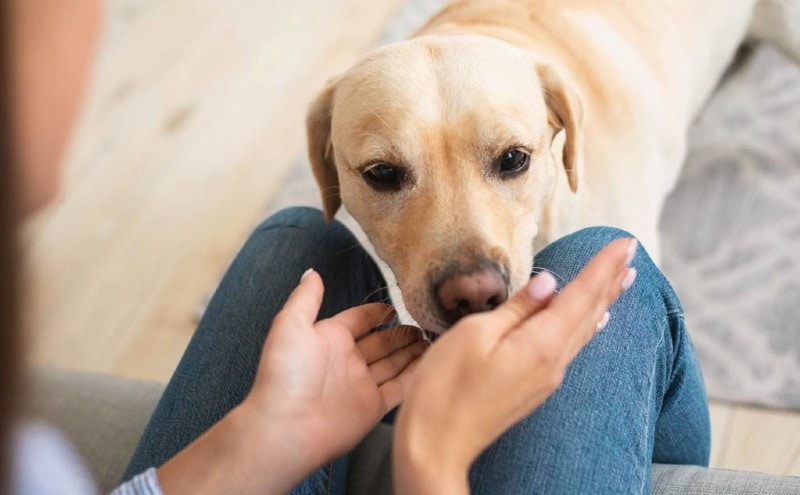









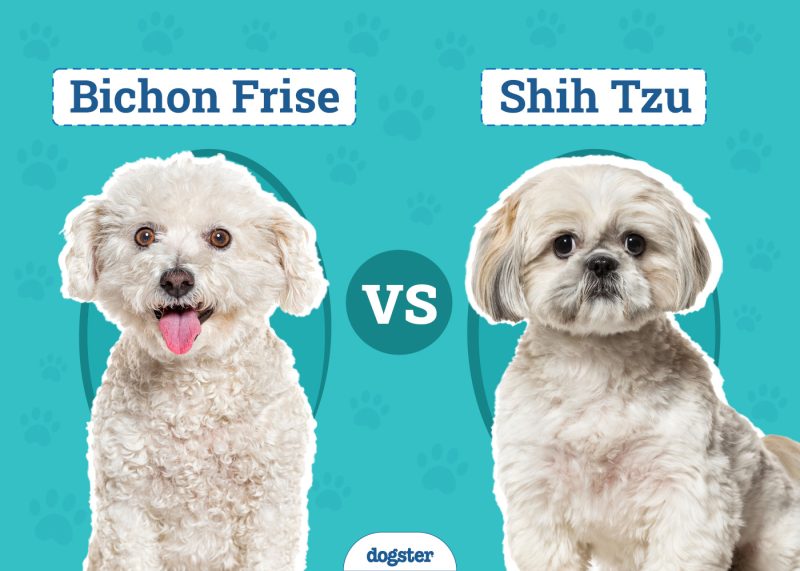





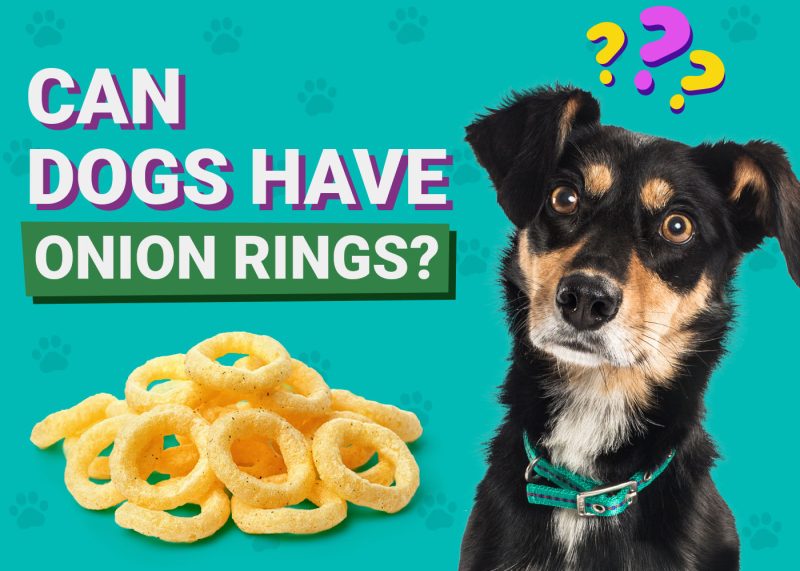
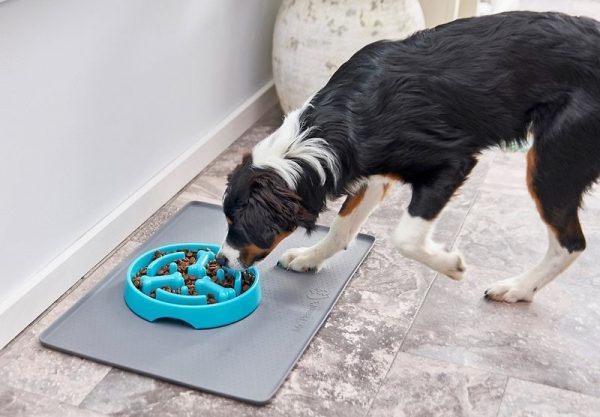





2 Responses
Thank you for your well articulated article on the benefits of canine cancer detection. I also found the information in your bio to be well structured and encouraging.
Thank you so much for the kind words, Jessie! That means a lot. 🙂